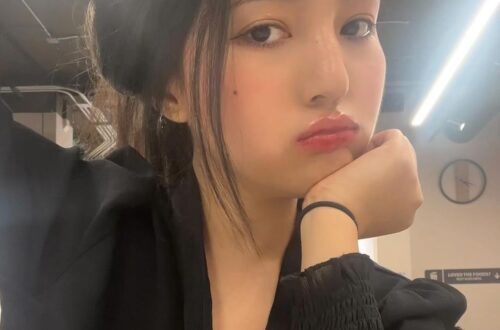- Uncategorized
The Price of Happiness in Omelas
In The Ones Who Walk Away From Omelas, Ursula K. Le Guin describes a happy and peaceful city where everyone seems to live a perfect life. But this happiness has a dark secret: it all depends on one child’s suffering. Le Guin uses the sharp difference between the city’s joy and the child’s pain to ask tough questions about what is right and wrong. Is it okay to sacrifice one person to make everyone else happy? This story pushes us to think about these difficult moral choices. Omelas looks like the perfect city. The people are smart, kind, and live in harmony. During the Summer Festival, children play, music fills…
- Uncategorized
Blurring Boundaries: Ambiguity and Race in Recitatif
In her story Recitatif, Toni Morrison uses confusion and unclear racial identity to talk about big ideas like identity, memory, and race. She nevers tells us if Twyla and Roberta are Black or White, which makes readers guess and think about their own assumptions. This confusion helps show how race can affect how we see the world. Also, the characters’ memories about Maggie and their fights over school integration make us think about how complicated race and society are. I will use three examples from the story to show how Morrison uses this unclear style to explore these themes. The idea of confusion and unclear racial identity is explored throughout…
-
The Power of Jazz in Sonny’s Blues
In Sonny’s Blues, jazz is more than just music for Sonny – it’s his way of expressing himself, surviving, and dealing with the pain he’s carried his whole life. When Sonny talks about becoming a musician, he tells his brother, “I want to play with jazz musicians. I want to play jazz.” This isn’t just a casual choice; it’s his way of coping with the struggles he faces in Harlem and the personal battles inside him. Jazz gives him a voice when words fail, and through music, he finds a way to be himself. Jazz also conects Sonny to others, especially his brother and community. At the nightclub, when the…
-
Act II, Scene II: The Desperate Islander and His Drunken “Master”
In Act II, Scene ii of Shakespeare’s The Tempest, Caliban meets Stephano, a drunk servant carrying a bottle of alcohol. This scene is funny, but it also shows us something about life in Shakespeare’s time. Back then, European countries were exploring new lands and meeting local people, called “natives.” Colonizers (the explorers from Europe) thought these natives needed to be “civilized,” so they tried to sometimes saw them as saviors and even depended on them. In this scene, when Caliban sees Stephano’s alcohol, he thinks it’s something magical, calling it “not earthly.” He believes Stephano has special powers and even promises to serve him as a “god.” Caliban doesn’t actually…
-
Act II, Scene 1’s blog
This scene makes me think about how civilization tries to control nature and what problems that causes. Gonzalo’s idea of a “natural” society seems nice, but it’s really a way for civilization to imagine controlling nature, ignoring real human conflicts and desires. Ariel and Caliban react differently to Prospero’s control: Ariel follows orders to earn his freedom, while Caliban resists to keep his own identity. Their choices show how people can seek freedom either by obeying or by fighting back. Together, these actions show the tension between nature and civilization and how people struggle with their place in it.
- Uncategorized
“Crossing Brooklyn Ferry.” Prompt: Blog post #3
Whitman’s thoughts about the quiet, unseen forces really got me thinking about how easy it is to miss the small things that shape us. In my own life, I’ve noticed that it’s not always the big events that change me, but those everyday moments or even people I don’t pay much attention to at first. He talks about nature and experiences waiting patiently, and that idea really sticks with me. It reminds me of how little things, like a random conversation or even just time spent in a certain place, end up having a bigger impact on who I am than I realized at the time. It’s those moments that…
-
Prompt: Blog Post 1
In “The Soul Selects Her Own Society”, one big idea that stood up to me is how important it is to choose who we let into our lives. The poem shows that the soul picks who she wants to be around and then closes the door on everyone else. This made me think about how we all do this in real life – we decide who gets to be close to us and who keep out. This poem changed how I think about this because it shows that it’s okay to be selective. The soul even ignores an emperor kneeling for her, which made me realize that not every person…
-
Introduction
Hi everyone, This is Karen L. I’m currently studying Veterinary Technology at LaGuardia Community College because I’ve always been passionate about animals. After volunteering at animal shelters, I realized I wanted to make a real difference by giving pets the care they deserve. My goal is to eventually work in an emergency or private pet clinic, where I can apply my skills and help animals in real-life situations. I’m also planning to find a shadowing opportunity to get some hands-on experience. While veterinary technology is my current focus, I believe my life won’t revolve around one profession. I see my future as full of possibilities, and after graduation, I plan…



